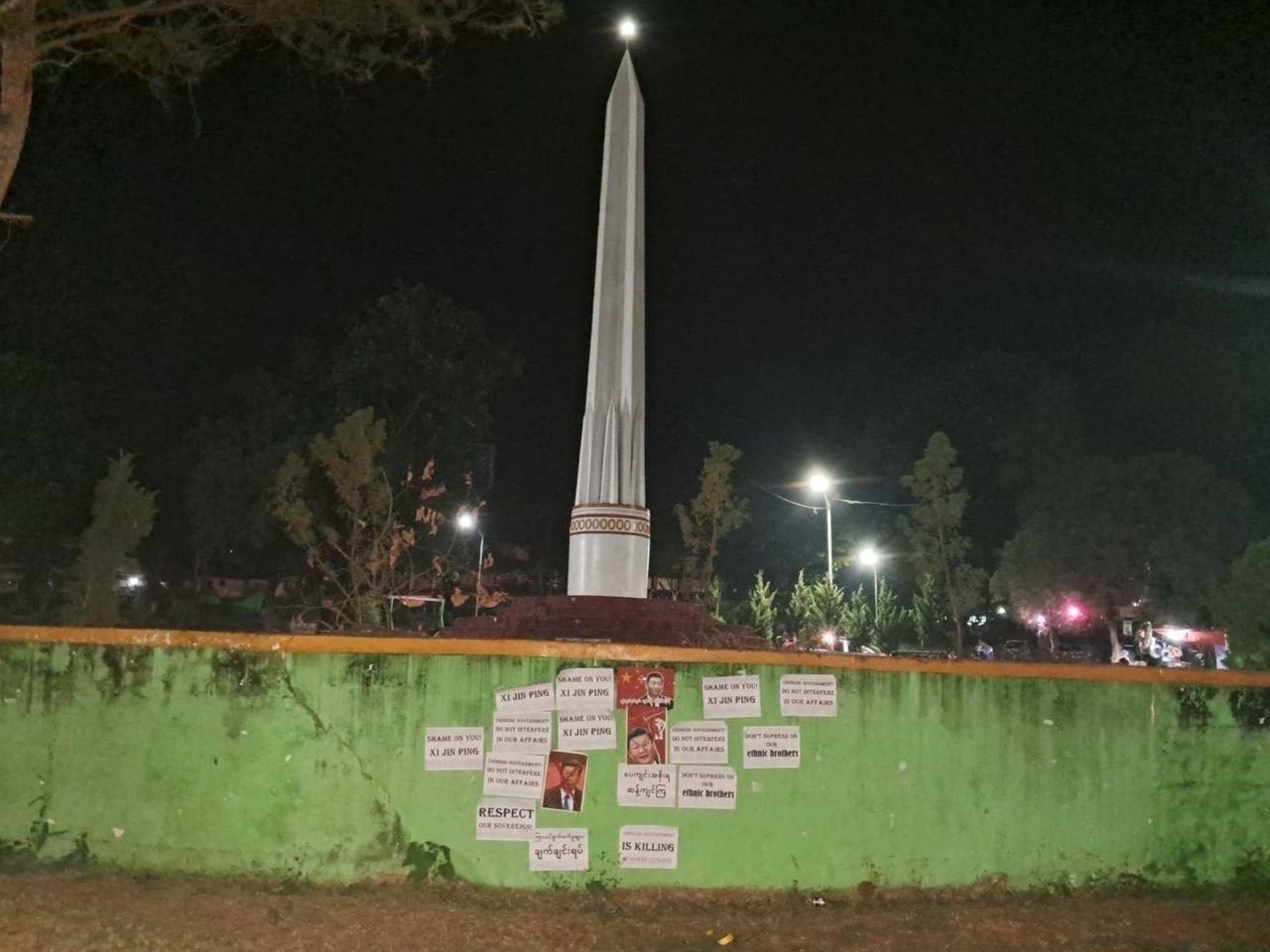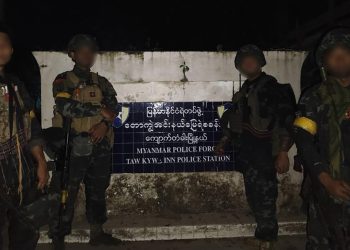Protesters in Lashio on Thursday night pleaded with the Myanmar National Democratic Alliance Army (MNDAA) to stay in the northern Shan State capital and called on China to stop interfering in their lives.
The Myanmar junta and MNDAA are preparing for another round of China-brokered talks on Saturday, but Lashio residents do not want the rebels to surrender their town to the regime, a protest leader told The Irrawaddy.
“The upcoming talks are expected to focus primarily on Lashio,” he said. “People here don’t want to live under the military regime again. Under MNDAA administration, they feel safe and free. That’s why they want the troops to stay.”
In late January, unconfirmed reports suggested that MNDAA forces, which had seized Lashio last year, might withdraw within six months under a China-brokered surrender deal. In response, more than 1,000 residents who support the MNDAA planned the demonstration, the leader added.
On Thursday night, a dozen locations across Lashio—the city gates, Independence Park, and other busy areas—became gathering points for protest actions. Residents staged a “silent” protest, distributing posters and messages urging China to stop interfering in Myanmar’s affairs, according to a woman who was at the demonstration.
“We are calling on China, as a foreign country, to respect the Myanmar people’s sovereignty,” she said. “China’s support for the junta only harms the people. We demand that the Chinese government stop assisting the military regime.”

The protest posters remained visible across the city on Friday morning, though MNDAA police were reportedly conducting searches and questioning residents in some areas, according to another local source.
For now, the MNDAA administration continues to operate in Lashio, and authorities have announced that the traditional Thingyan New Year Festival will be celebrated as usual in April. No official statement has been made about a possible withdrawal of MNDAA forces.
But even ahead of the talks, China summoned top military commanders from the MNDAA’s four administrative districts and Lashio’s military leadership to a meeting lasting over a week, sources said.
During the previous talks in January, both sides officially agreed a ceasefire, and China in turn reopened all border trade checkpoints leading to Kokang, restoring the flow of fuel, medicine, electricity, telecommunications, and basic goods.
This went some way to reducing extortionate consumer prices, but Chinese authorities warned that the border checkpoints could be closed again at any time.
Kokang authorities have since advised residents to stockpile essential goods.

















